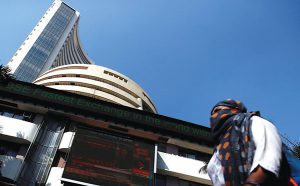Bloomberg
India is best positioned among emerging nations to withstand a global recession, as a thriving domestic market makes it less dependent on exports, according to US-based GQG Partners LLC.
The firm has more than $7 billion invested in India, where favorable demographics are driving local consumer demand, Sudarshan Murthy, a portfolio manager, said in an interview. GQG’s upbeat view on India bucks the nearly $30 billion exodus of foreign funds from the nation’s stock market this year.
“I’m puzzled by the extent of foreign outflows from India,†Murthy, whose firm manages $85 billion, said citing higher crude prices as a possible reason why some would exit the oil-importing country. Rising costs for consumers may deter some investors, but 7-8% inflation in a developing country is “fine,†he said.
India held up relatively well even as EM peers suffered their worst first-half performance in 24 years amid concerns on US interest-rate hikes and China’s pandemic lockdowns. The MSCI India Index is down about 5% so far this year compared with a 20% loss in the MSCI Emerging Markets Index.
GQG’s emerging-market equity fund has allocated over a quarter of its portfolio to India, almost on par with its China weighting, with ITC Ltd. and Reliance Industries Ltd. among its largest holdings. The broader EM selloff has weighed on performance of the fund, which lost about 18% in the first half.
Murthy is bullish on India’s large private banks, saying they offer better credit growth and profitability than peers in other countries. India is one of the only countries that offers positive demographics, along with Indonesia, while it also carries low regulatory risk compared with nations like China, he said.
The MSCI Emerging Markets Index has fallen about 17% this year through Monday, the second-steepest plunge for the period in data stretching back to 1993. The benchmark slid more than 20% during first six months of 1998 when the Asian financial crisis upended markets. A few months later, Russia defaulted on its local debt.
The MSCI EM Index has slumped for the last four quarters in the longest losing streak since 2008 and now trades at about 11.9 times estimated earnings, hovering near its lowest valuation since March 2020, the start of the pandemic.
JPMorgan Chase & Co. is more optimistic. Strategists led by Marko Kolanovic expect emerging-market equities to outperform developed peers in the second half, forecasting a 20% upside from current levels to the MSCI Emerging Markets by the end of the year.
 The Gulf Time Newspaper One of the finest business newspapers in the UAE brought to you by our professional writers and editors.
The Gulf Time Newspaper One of the finest business newspapers in the UAE brought to you by our professional writers and editors.
